Because of Her We Can! NAIDOC Week 2018
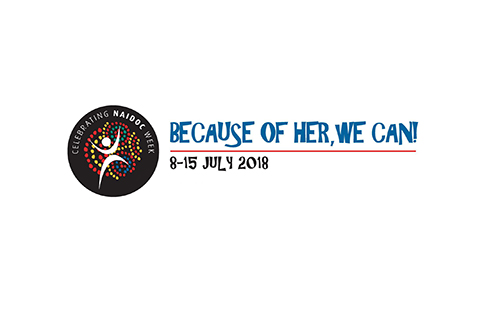
WARNING: THIS MAY CONTAIN NAMES AND IMAGES OF ABORIGINAL AND TORRES STRAIT ISLANDER PEOPLE WHO ARE NOW DECEASED.
During NAIDOC Week in 2018, Western Sydney University will honour Aboriginal and Torres Strait Islander women who have made transformative contributions to the University community.
Professor, Lisa Jackson Pulver AM Pro Vice-Chancellor Engagement; Pro Vice-Chancellor Aboriginal and Torres Strait Islander Leadership said,
“We can’t do anything without her! She is the engine room that keeps everything going”
The following are just some of the extraordinary women who have contributed their wisdom to Western Sydney University:
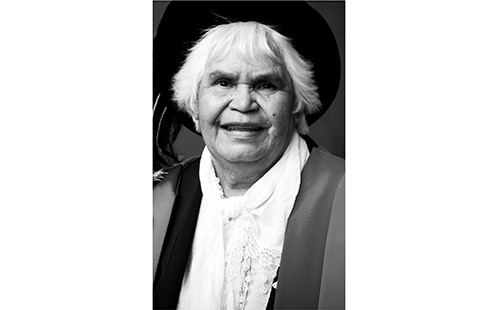
“Women can change things when they need to – my mother taught me that.”
Aunty Mae is a descendant of the Yuin and Kamilaroi people and is a long-time resident of Western Sydney. She studied at Milperra CAE (now Western Sydney University) in 1980 and after graduation, worked in the education system, helping draft the state’s first ever Aboriginal Education Policy. Aunty Mae has received more than 20 awards, including an Honorary Doctorate and the ‘Woman of the West’ award from Western Sydney University and she is currently an Elder on Campus at the University.
2. Aunty Pearl Wymarra
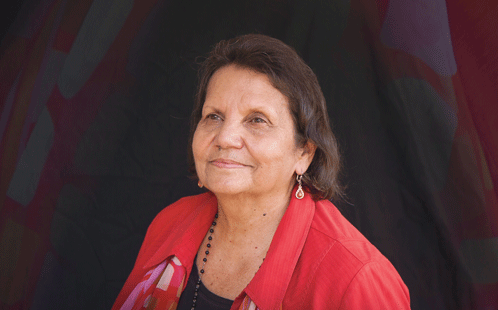
“We can make a difference if we work collaboratively and in mutually respectful relationships, valuing what everybody brings to the table. No one person has the answers – we all have some of it.”
Aunty Pearl Wymarra’s mother was from Borroloola in Queensland. As a mature-aged student, she graduated with a Diploma in Primary Teaching in 1980, and a Masters in Health Science in 2001, both from Western Sydney University. Aunty Pearl Wymarra worked in primary education, government and was a former Director, Wyung Aboriginal Unit at Hawkesbury, which is now the Badanami Centre for Aboriginal and Torres Strait Islander Peoples Education. She was made an Honorary Fellow in 2000 and describes Western Sydney University as a "belonging and healing place."
3. The late Dr Margaret Williams-Weir (1937-2015)
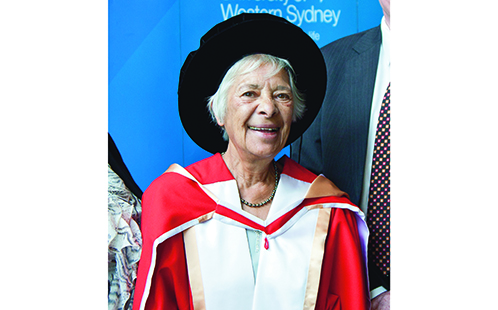
“I’ve always had a great sense of responsibility to the Earth, I’ve never been just a little girl who grew up in northern New South Wales, I’ve been a daughter of the planet.”
The first recorded Aboriginal person to graduate from an Australian university, Dr Margaret Williams-Weir was born in northern NSW and is a Malara Bundjalung woman. She served as a Consulting Member of the Western Sydney University Aboriginal and Torres Strait Islander Employment and Engagement Advisory Board. Dr Williams-Weir was honoured for her trail-blazing legacy as a life-long educator, researcher and contribution to higher education at the launch of the Universities Australia Indigenous Strategy 2020 at Parliament House in Canberra 2017.
4. Emeritus Professor MaryAnn Bin-Sallik AO
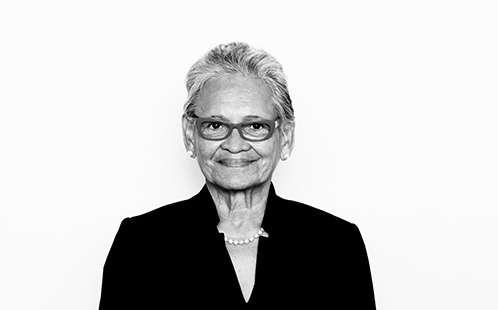
“In Aboriginal communities, nothing is on your own, you always have someone supporting you.”
Emeritus Professor MaryAnne Bin-Sallik of the Djaru people of the Turkey Creek area has experienced many firsts. She was the first Aboriginal person to graduate as a trained nurse in Darwin, the first Aboriginal Australian to receive a Doctorate from Harvard University and is currently a member of the Western Sydney University Board of Trustees. Emeritus Professor Bin-Sallik has received many accolades for her dedication to education reform, and was named Female Elder of the Year during NAIDOC 2016.
5. Aunty Thelma Quartey
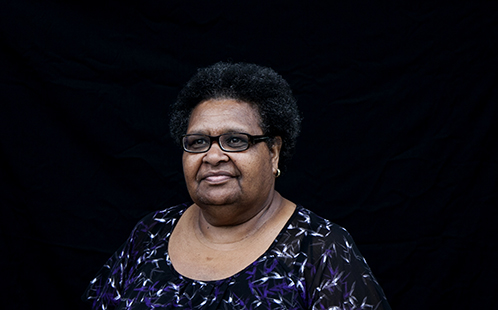
Aunty Thelma Quartey’s mother’s family comes from Murray Island in the eastern Torres Strait, known as the Meriam People. Aunty Thelma helped organise the First Peoples network in the Hawkesbury area and performed Torres Strait Islander dances and music. Many years later, she joined the University’s Aboriginal and Torres Strait Islander Employment and Engagement Advisory Board, and helped develop the action plan that recognises Aboriginal and Torres Strait Islander staff and understand their needs.
6. Aunty Jean South, Badanami Elder in Residence
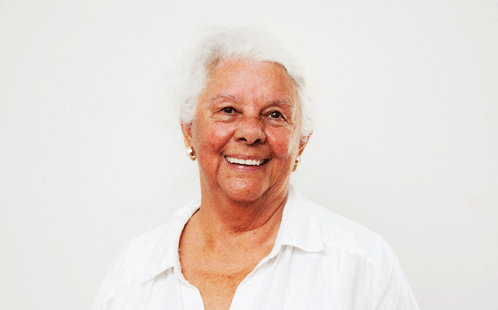
“If I can do it, then so can you.”
Aunty Jean is an alumnus of the University achieving a Bachelor of Arts in 1990. She is also an accomplished artist participating, curating and featuring in many exhibitions. Aunty Jean has a breadth of experience working in high schools and in the higher education sector. Aunty Jean has been an active member of many committees including the National Aboriginal and Torres Strait Islanders Higher Education Network.
Melissa Williams, Director of the Office of Aboriginal and Torres Strait Islander Employment and Engagement, says
“In light of this occasion, we are taking the opportunity to acknowledge the wisdom, knowledge and experiences of Aboriginal and Torres Strait Islander women, who continue to leave an indelible mark that lifts up the University and makes it a more inclusive and culturally-rich institution, for the region and for the nation,” says Ms Williams.
As part of NAIDOC Week celebrations at the University, all staff and students are invited to take part in the annual NAIDOC Week Quiz, and view the photographic exhibition titled 'Too Dark to See' in the Badanami Centre (Building 12), Bankstown Campus and the Yarramundi exhibition in the Badanami Centre, (Building EY), Parramatta South Campus.
ENDS
9 July 2018
Contact: Clare Patience Senior Media Officer
Latest News

Opinion: Most bees don’t die after stinging – and other surprising bee facts
Most of us have been stung by a bee and we know it’s not much fun. But maybe we also felt a tinge of regret, or vindication, knowing the offending bee will die. Right? Well, for 99.96% of bee species, that’s not actually the case.
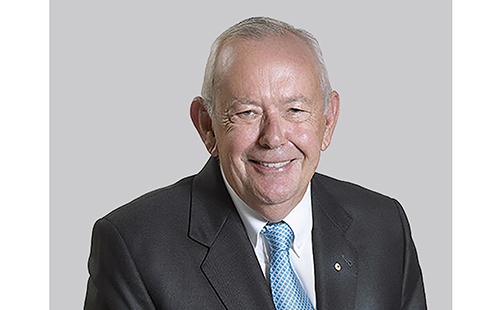
Western Sydney University receives transformational donation to support LGBTIQA+ community
Western Sydney University has welcomed a philanthropic donation from The Brennan Lynch Foundation.
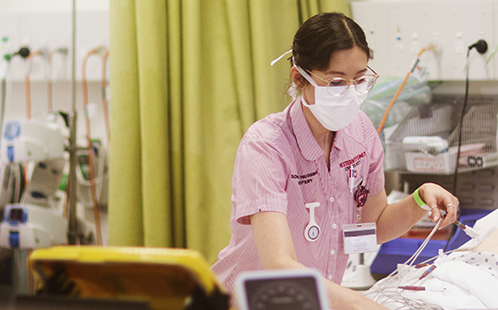
Western Sydney University ranks among world’s best for 23 subjects
The University has been named as one of the world’s top universities for the study of 23 subjects in the latest edition of the QS World University Rankings by Subject, including being ranked in the top 50 for Nursing.
Mobile options:

